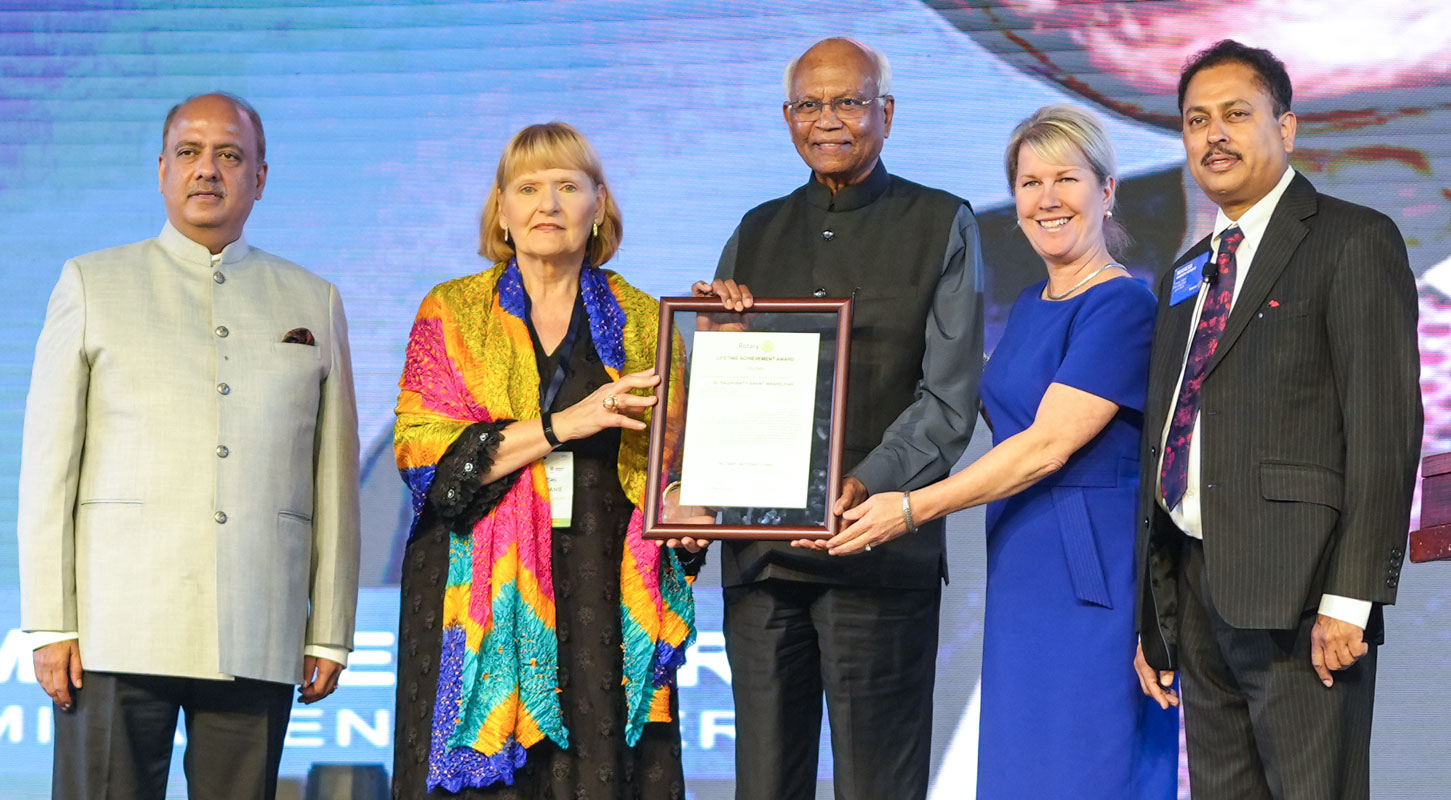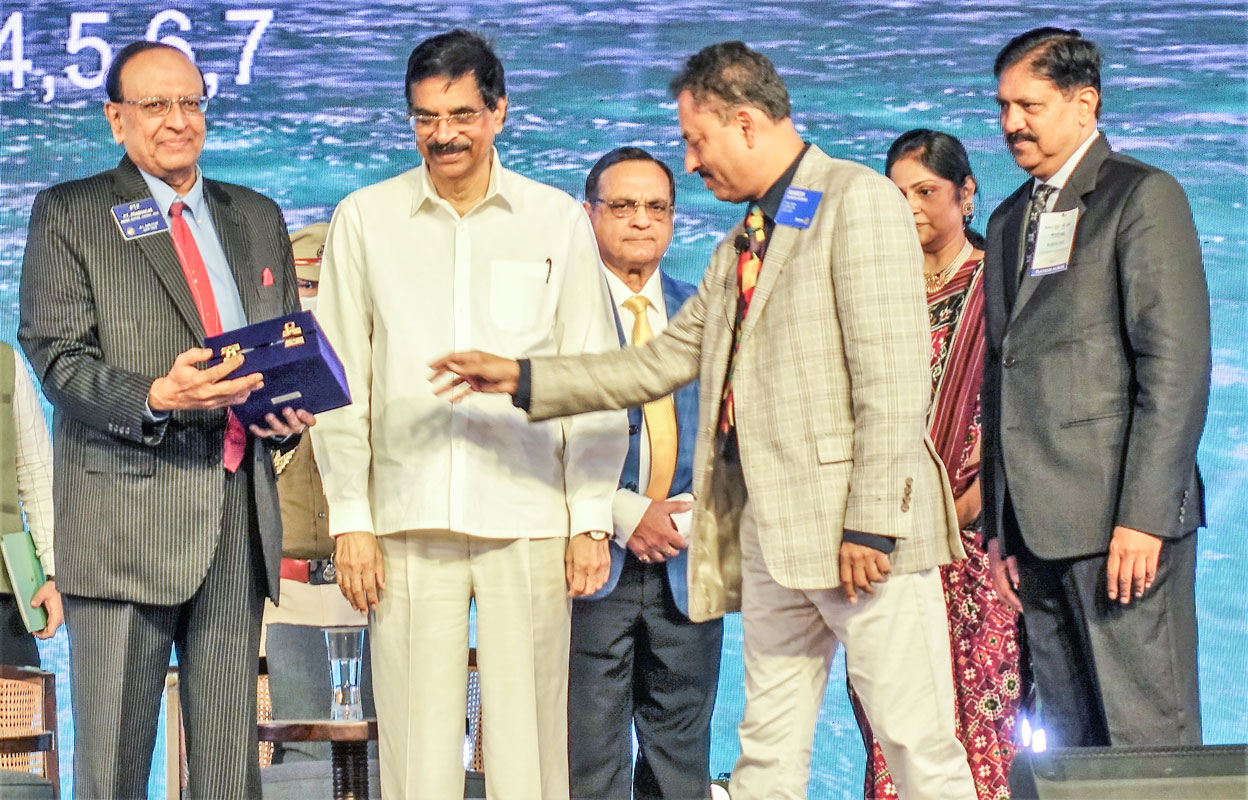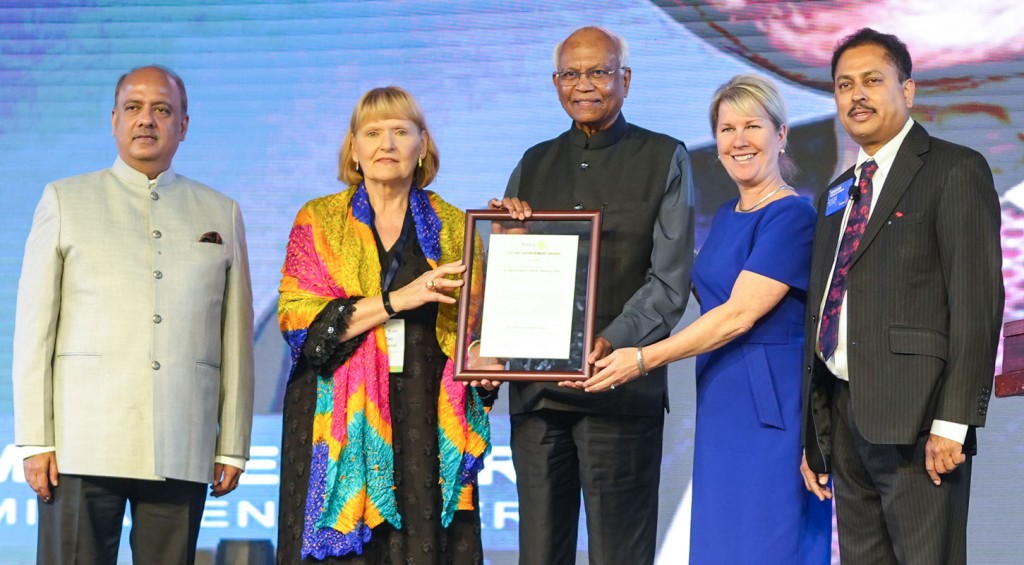
India needs to give a quantum push to grassroots innovation in tier-2 cities and villages to leapfrog into a new paradigm in science and technology, that will create a radical, yet sustainable transformation in society, said R A Mashelkar, eminent scientist and pioneer in Gandhian engineering.
Speaking at the inaugural of Visakha Vista, the scientist, who is a chemical engineer by profession said, “The country has to switch from the idea of leapfrogging to pole-vaulting so that young scientists, technopreneurs and thought leaders can realise their vision. This radical change will bring in a social revolution with entirely new sets of products and services for a new world.” Indian scientists must not be just content with best practices, but get into the ‘next practice’. “My experiments in betting on risky ideas have proved that 3Ts — talent, technology and trust — are the key drivers of growth. After the entry of Reliance Jio in mobile telephony, India has jumped from the 155th position to first rank in the mobile data usage over the last few years. The speed and scale of mobile connectivity have reached new heights,” he said.
With the aim to boost local innovators, Reliance Innovation Council (RIC) was set up by Mukesh Ambani, chairman, Reliance Industries, to incubate talent at the grassroots. “Beyonders at the RIC is a mentorship programme for budding and young rural talent… people who have original, but path-breaking ideas that can create scalable and sustainable products — this is one such effort at pole-vaulting,” said the former director general of CSIR. Currently heading the New Energy Council of Reliance, Mashelkar said young scientists like Myshkin Ingawale, co-founder, Biosense, and Rahul Rastogi, founder-CEO, Agatsa, have made global headlines with their disruptive, new-age technologies.
Ingawale invented a needle-free, painless haemoglobin test and a smartphone app for urine test, while Rastogi has designed a pocket-size ECG device, Sanket Life, to check the heart and a low-cost, non-invasive screening for breast cancer. “Success is assured in pole-vaulting if the innovation is affordable, scalable, universal (in applications) and resilient. But the risk averse mindset is cynical over radical changes,” he said.

India’s unicorns (startups with market cap of over $1 billion) have great potential to forge a new scientific ecosystem, he said. Born into a poor family in Mashel village, Goa, “getting two meals a day was a challenge then and I studied under streetlights. I was about to quit school, when I got a Tata scholarship of ₹60 per month to finish my school education.” With purpose and perseverance, “there is no limit to human endurance, imagination and achievements,” he added.
Addressing the institute, Mizoram Governor K Hari Babu said humanity is on the threshold of global elimination of polio and this profound success would not have been possible without the partnership between Rotary and governments that created a synergy for the stakeholders.
“RI is known for its impartial, broad-based approach to build happy communities across the world. It has created a universal template with its 4-Way Test, an epitome of fairness and equity in human interactions.”
Recalling the partnership between the American universities and the US Defence department which funded the high-end academic research that led to the evolution of internet in early1980s, Babu said, “thanks to this collaboration, we now have a wonderful tech tool that benefits humanity in many ways.” Governments need NGOs like Rotary and Red Cross Society to work along with them to ensure the success of their programmes and welfare schemes.
In India there are private charities like Azim Premji Foundation and Ratan Tata Trust that work on multiple fronts taking up many challenges. Recently, Swayam Shikshan Prayog, a collective of women farmers in the Marathwada region working to provide efficient irrigation models and create awareness on water conservation, has bagged the Local Adaptation Champion Award at the COP27 Climate Change talks in Egypt. Another active group, CRY — Child Rights and You — is providing education and healthcare to poor children in partnership with the Union and state governments, he said.
Holding the Rotary institute in Visakhapatnam will enable the “local government to reach out more effectively to the communities,” said the former MLA and ex-MP from Visakhapatnam. “Also the visit of over 1,000 Rotarians will create a new visibility for us to attract more tourists.”
Earlier introducing the governor, PRID P T Prabhakar said the GoI had joined hands with Rotary in its fight against polio and “the huge success of PolioPlus campaign and awareness projects can be attributed to our collaborative approach.” For optimum results of service projects, “Rotary needs facilitation by the government. After polio, GoI has tied up with us in measles and rubella eradication programmes. Likewise, we can forge partnerships for other healthcare projects like cancer screening and prevention for better reach and impact,” he added.
Pictures by Rasheeda Bhagat






